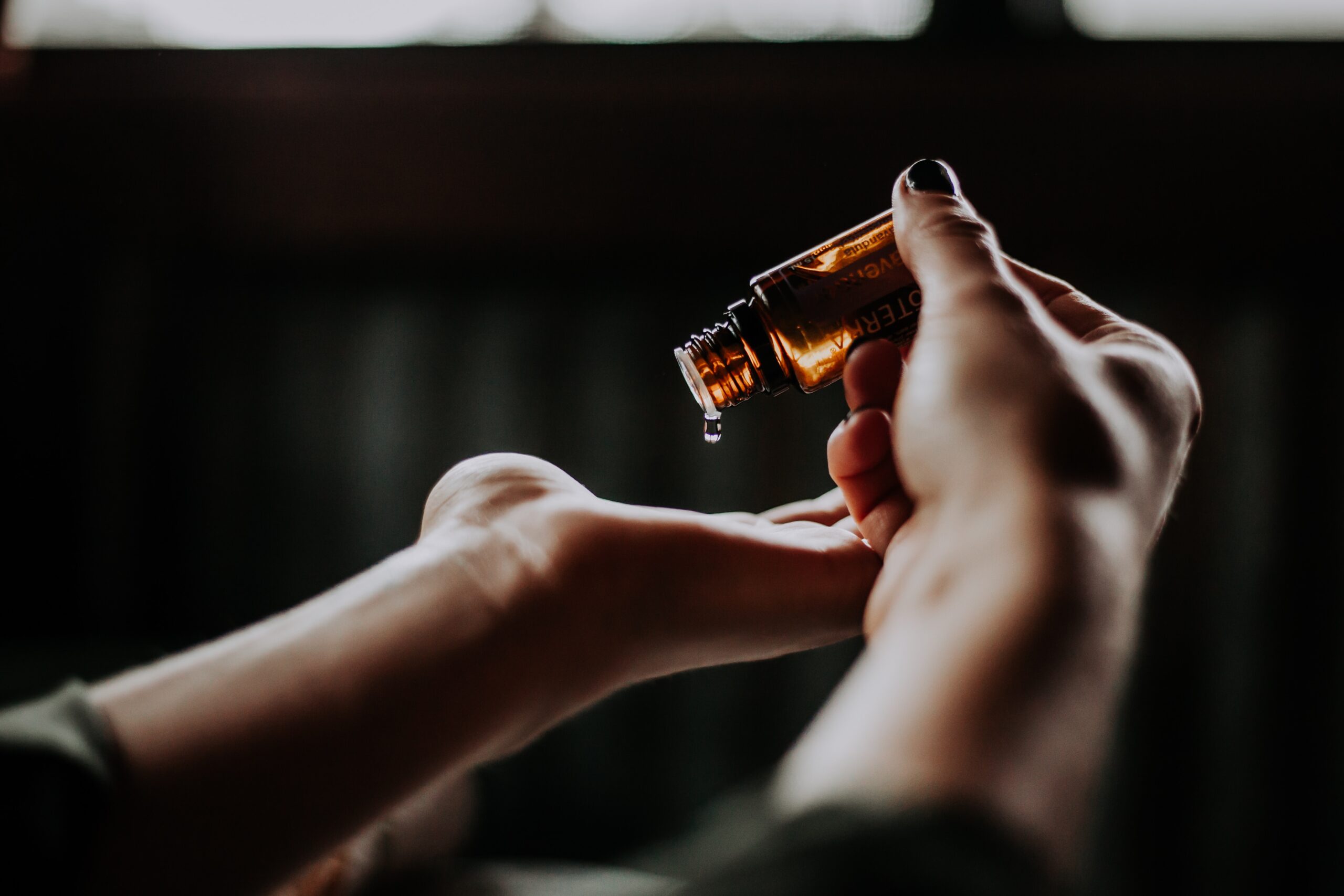In this article, we explore the question of whether alcohol consumption can worsen prostate problems. For many men, enjoying a drink or two is a regular part of socializing or winding down after a long day. However, it's important to understand the potential impact that alcohol can have on our health, specifically when it comes to the prostate. Stick around as we delve into the research and uncover the connection between alcohol consumption and prostate problems.
Understanding Prostate Problems
Prostate problems refer to conditions that affect the prostate gland, a small walnut-shaped gland located just below the bladder in men. The prostate gland plays a crucial role in the reproductive system, producing fluid that nourishes and transports sperm. As men age, they become more susceptible to various prostate issues, including prostate inflammation, enlargement, and even prostate cancer.
Defining Prostate Problems
Prostate problems encompass a range of conditions, with the most common being prostatitis, benign prostatic hyperplasia (BPH), and prostate cancer. Prostatitis involves an inflammation of the prostate gland, which can be either acute or chronic. BPH, on the other hand, is characterized by the enlargement of the prostate gland, leading to urinary difficulties. Prostate cancer is the most serious and potentially life-threatening condition, where malignant cells grow within the prostate gland.
Types of Prostate Problems
As mentioned earlier, prostate problems can be classified into three main types: prostatitis, benign prostatic hyperplasia (BPH), and prostate cancer. Prostatitis is further divided into acute bacterial prostatitis, chronic bacterial prostatitis, chronic prostatitis/chronic pelvic pain syndrome (CPPS), and asymptomatic inflammatory prostatitis. BPH is primarily age-related and occurs due to the growth of noncancerous cells within the prostate, leading to urinary symptoms. Prostate cancer, the most severe form, involves the uncontrolled growth of malignant cells within the prostate gland.
Common Symptoms Associated with Prostate Problems
Prostate problems can manifest through various symptoms, although the specific signs may vary depending on the condition. Some common symptoms include frequent urination, weak urine flow, difficulty starting and stopping urination, nocturia (waking up frequently at night to urinate), pain or discomfort during urination or ejaculation, blood in the urine or semen, and erectile dysfunction. It's essential to note that these symptoms are not exclusive to prostate problems and may be indicative of other health issues. Therefore, it's crucial to seek medical advice for an accurate diagnosis.
Risk Factors of Prostate Problems
Several factors can increase an individual's risk of developing prostate problems. Age is one of the most significant risk factors, as prostate problems become more prevalent with increasing age. Family history also plays a role, with individuals having a close relative diagnosed with prostate cancer being at higher risk. Ethnicity is another factor, with African American men having a higher risk of both developing and dying from prostate cancer. Other risk factors include certain lifestyle choices, such as a diet high in red meat and low in fruits and vegetables, obesity, smoking, and exposure to certain chemicals.
Alcohol Consumption and General Health
The Role of Alcohol in the Body
Alcohol is a commonly consumed beverage worldwide and has both short-term and long-term effects on the body. When consumed, alcohol is rapidly absorbed into the bloodstream and can affect various organs and systems, including the brain, liver, cardiovascular system, and kidneys. In moderation, alcohol can have some potential health benefits, such as reducing the risk of heart disease. However, excessive and chronic alcohol consumption can lead to several negative health effects.
Negative Effects of Alcohol Consumption
While moderate alcohol consumption may have some potential health benefits, excessive and prolonged alcohol consumption can have severe negative effects on the body. These include liver disease, cardiovascular problems, weakened immune system, neurological disorders, gastrointestinal issues, and increased risk of certain types of cancer. Alcohol can also disrupt sleep patterns and contribute to mental health problems such as depression and anxiety.
Chronic Illnesses Related to Alcohol Consumption
There is a strong association between heavy alcohol consumption and the development of chronic illnesses. Chronic diseases such as liver cirrhosis, alcoholic hepatitis, pancreatitis, and cardiovascular diseases are commonly linked to excessive alcohol intake. These conditions can significantly impact an individual's overall health and quality of life.
How Alcohol Affects the Urinary System
Alcohol consumption also affects the urinary system, which includes the kidneys, bladder, and associated structures. Alcohol acts as a diuretic, meaning it increases urine production, leading to more frequent urination. This diuretic effect can contribute to dehydration if not properly managed. Additionally, excessive alcohol consumption can irritate the bladder and contribute to bladder control issues, such as urinary incontinence.

The Direct Impact of Alcohol on the Prostate
Alcohol and Prostate Inflammation
Prostate inflammation, or prostatitis, is a condition that can cause discomfort and urinary symptoms in men. While the direct impact of alcohol on prostate inflammation is not fully understood, excessive alcohol consumption is known to weaken the immune system. A compromised immune system may increase the risk of developing infections, including bacterial prostatitis, which is a form of prostatitis caused by bacteria. Additionally, alcohol's diuretic effect may further irritate the prostate and worsen inflammation symptoms.
Alcohol and Prostate Cancer
Prostate cancer is a complex disease influenced by various factors, including genetics, age, and lifestyle choices. While moderate alcohol consumption may have some protective effects against heart disease, the relationship between alcohol and prostate cancer is less clear. Some studies have suggested that heavy alcohol consumption may increase the risk of aggressive prostate cancer, while others have found no significant association. Further research is needed to fully understand the potential link between alcohol and prostate cancer development.
The Effect of Alcohol on Prostate Size
Benign prostatic hyperplasia (BPH) is a common condition characterized by the enlargement of the prostate gland. While alcohol consumption itself may not directly cause BPH, it can exacerbate symptoms and increase the likelihood of urinary difficulties. Alcohol's diuretic effects can lead to bladder irritation, causing more frequent urination and potential discomfort for individuals with an enlarged prostate. Therefore, it is advisable for individuals with BPH to moderate their alcohol intake.
How Alcohol May Exacerbate Prostate Problems
Alcohol consumption can potentially worsen existing prostate problems by aggravating symptoms and increasing discomfort. Excessive alcohol intake can lead to dehydration, which may worsen urinary symptoms associated with prostate conditions. Additionally, alcohol's effect on the immune system can impair the body's ability to fight infections, increasing the risk of prostatitis. It is important for individuals with prostate problems to discuss their alcohol consumption with their healthcare provider to determine the safest and most appropriate approach.
Underlining Studies on Alcohol and Prostate Health
Existing Research on Alcohol and Prostate Problems
Numerous studies have focused on examining the relationship between alcohol consumption and prostate health. However, the findings of these studies have been mixed, making it challenging to draw definitive conclusions. Some studies suggest that moderate alcohol consumption may have a protective effect against certain prostate conditions, while others indicate a potential increase in risk, particularly with heavy drinking. Overall, more research is needed to better understand the complex relationship between alcohol and prostate health.
Limitations in Current Studies
One of the challenges in studying the relationship between alcohol consumption and prostate health is the reliance on self-reported data from participants. Self-reporting can be subject to recall bias and inaccuracies, potentially affecting the validity of study results. Additionally, many studies focus on specific populations or have limitations in sample size, making it challenging to generalize findings to the broader population. Future studies should aim to address these limitations to improve understanding of alcohol's impact on prostate health.
Key Findings from Major Studies
While studies on alcohol and prostate health have yielded mixed results, there are several key findings worth noting. Some studies suggest that moderate alcohol consumption, especially red wine, may have a protective effect against certain prostate conditions, potentially due to the presence of antioxidants and polyphenols in red wine. However, heavy alcohol consumption appears to increase the risk of aggressive prostate cancer. It is important to interpret these findings with caution, as individual factors and overall lifestyle choices also play a significant role in prostate health.
Emerging Research Trends
Emerging research trends in the field of alcohol and prostate health focus on the molecular mechanisms underlying alcohol's impact on the prostate gland. Scientists are exploring the effects of alcohol on gene expression, inflammation pathways, and hormonal balances in relation to prostate conditions. Understanding these intricate mechanisms can provide valuable insights into the specific ways in which alcohol may contribute to or exacerbate prostate problems. Continued research in this area will help shape future preventive and treatment strategies.

Myths and Misconceptions about Alcohol and Prostate Health
Misconception: Moderate Alcohol Usage is Beneficial to Prostate Health
One common misconception is that moderate alcohol usage is beneficial to overall prostate health. While some studies have suggested potential protective effects of moderate alcohol consumption on certain health conditions, the evidence regarding prostate health is inconsistent. It is crucial to approach alcohol consumption with moderation, considering individual factors and overall lifestyle choices.
Myth: Only Heavy Drinking Causes Prostate Issues
Contrary to popular belief, only heavy drinking does not cause prostate issues. While heavy alcohol consumption has been associated with an increased risk of certain prostate conditions, including aggressive prostate cancer, other factors such as genetics, age, and lifestyle choices also play a significant role. It is important to consider the entirety of one's health and make informed decisions about alcohol consumption in consultation with healthcare professionals.
Misconception: Certain Types of Alcohol are ‘Safer' for Prostate Health
There is a prevalent misconception that certain types of alcohol, specifically red wine, are ‘safer' for prostate health compared to other alcoholic beverages. While red wine may contain antioxidants and polyphenols that have potential health benefits, it is essential to remember that individual reactions to alcohol vary, and overall lifestyle choices are equally if not more important. It is advisable to focus on a holistic approach to prostate health, including a healthy diet, regular exercise, and routine medical check-ups.
Diet, Lifestyle Factors, and Prostate Health
Interplay Between Diet, Lifestyle, and Prostate Problems
Diet and lifestyle factors have a significant impact on prostate health. A diet rich in fruits, vegetables, whole grains, and lean proteins is generally associated with better prostate health. Regular exercise, maintaining a healthy weight, and avoiding smoking are also essential for reducing the risk of prostate problems. Additionally, managing stress levels and incorporating relaxation techniques can contribute to overall well-being.
Alcohol as Part of Dietary Habits
Alcohol is often a part of social and cultural dietary habits. While moderate alcohol consumption may be acceptable for some individuals, it is crucial to consider the specific impact it may have on prostate health, especially for those already experiencing prostate problems. Alcohol intake should be mindful and discussed with healthcare professionals to determine the balance between potential benefits and risks.
Other Dietary Factors Affecting Prostate Health
Several dietary factors have been identified as potential influencers of prostate health. Some studies suggest that consuming foods rich in lycopene, such as tomatoes, and green tea may have protective effects against prostate cancer. On the other hand, a diet high in red meat and saturated fats may increase the risk of prostate problems. It is essential to maintain a balanced diet, incorporating a variety of nutrient-rich foods for optimal prostate health.
Holistic Approach to Prostate Health
Prostate health is not solely dependent on a single factor, such as alcohol consumption. It requires a holistic approach encompassing various lifestyle factors, including diet, exercise, stress management, and regular medical check-ups. By adopting a comprehensive approach to prostate health, individuals can proactively mitigate potential risks and improve overall well-being.

Alternatives to Alcohol for Maintaining Prostate Health
Alcohol-free Beverages
For individuals looking to reduce or eliminate alcohol consumption, there are numerous alcohol-free beverage options available. These include a wide range of non-alcoholic beers, wines, and mocktails. These alternatives can provide a similar sensory experience to alcoholic beverages without the potential adverse effects associated with alcohol.
Healthy Foods for Prostate Health
Maintaining a healthy diet is crucial for prostate health. Some foods that have been associated with potential benefits include tomatoes, berries, green tea, cruciferous vegetables (such as broccoli and cauliflower), legumes, fish high in omega-3 fatty acids, and nuts. These foods are rich in antioxidants, vitamins, and minerals that support overall prostate health.
Lifestyle Adaptations for Better Prostate Health
In addition to dietary changes, individuals can make lifestyle adaptations to support better prostate health. Regular exercise, such as walking, swimming, or cycling, can have positive effects on overall health, including prostate health. Stress management techniques, such as meditation, deep breathing exercises, or engaging in hobbies, can also reduce stress levels and improve overall well-being.
Consulting Healthcare Professionals about Alcohol and Prostate Health
When to Seek Medical Advice on Prostate Health
It is advisable to seek medical advice if you experience any symptoms associated with prostate problems or have concerns about your prostate health. These symptoms may include frequent urination, weak urine flow, pain or discomfort during urination or ejaculation, blood in the urine or semen, or erectile dysfunction. Additionally, if you have a family history of prostate problems, it is important to discuss your risk factors with a healthcare professional.
Preparing to Discuss Alcohol Usage with a Physician
Before discussing alcohol usage with a physician, it can be helpful to reflect on your drinking habits and any concerns you may have. Consider keeping a journal of your alcohol consumption to provide accurate information to your healthcare professional. Be open and honest about your drinking patterns, including any daily, weekly, or occasional alcohol consumption, to enable your physician to provide appropriate guidance based on your individual circumstances.
Addressing Concerns about Alcohol and Prostate Health
During the conversation with your healthcare professional, share any specific concerns you have regarding alcohol and its impact on your prostate health. Your physician can provide evidence-based information and guidance tailored to your situation. It is important to remember that healthcare professionals are there to support and help you make informed decisions regarding your overall health, including alcohol consumption and its potential implications on your prostate.
Alcohol and Medications for Prostate Problems
Interactions Between Alcohol and Prostate Medications
If you are taking medications for prostate problems, it is essential to consider potential interactions between alcohol and these medications. Some medications prescribed for prostatitis, BPH, or prostate cancer may interact with alcohol, potentially affecting the medication's efficacy or increasing the risk of side effects. It is crucial to consult with your physician or pharmacist to understand how alcohol may impact your specific medication regimen.
Potential Harm from Mixing Alcohol and Prostate Medications
Mixing alcohol with certain medications can have adverse effects on both the medication's effectiveness and your overall health. For example, alcohol can enhance the sedative effects of certain medications, leading to drowsiness, dizziness, or even loss of coordination. Additionally, alcohol can interact with medications metabolized by the liver, potentially increasing the risk of liver damage or other adverse effects. It is imperative to follow your healthcare professional's guidance and avoid alcohol if it conflicts with your medication.
Discussing Medication Usage and Alcohol with a Pharmacist
To ensure your medication regimen is compatible with alcohol, consider discussing your medication usage and alcohol consumption with a pharmacist. Pharmacists are highly knowledgeable about drug interactions and can provide valuable insights into potential risks or precautions associated with your specific medications. They can help assess the safety of combining alcohol and your prostate medications and offer suggestions or alternatives if necessary.
Creating a Personal Plan for Prostate Health
Assessing Personal Risk Factors for Prostate Problems
Assessing personal risk factors is an important step in creating a plan for prostate health. Consider factors such as age, family history, ethnicity, lifestyle choices, and overall health status when evaluating your risk. If you are at higher risk due to these factors, it becomes crucial to take proactive steps towards maintaining optimal prostate health.
Creating a Healthy Eating Plan
A healthy eating plan plays a significant role in promoting prostate health. Aim to incorporate a variety of fruits, vegetables, whole grains, lean proteins, and healthy fats into your diet. Limiting the intake of processed and red meats while avoiding excessive salt and sugar can also contribute to better overall health. Consulting a registered dietitian can provide personalized guidance in creating a healthy eating plan suitable for your individual needs.
Making Decisions about Alcohol Usage
Based on the knowledge obtained about the potential impact of alcohol on prostate health, it is essential to make informed decisions regarding alcohol usage. Consider your health status, family history, and any existing prostate problems when determining your alcohol consumption habits. Moderation and balance are key, and if you choose to drink alcohol, it is crucial to do so responsibly and in consultation with healthcare professionals.
Incorporating Exercise and Stress Management
Regular exercise and stress management techniques are integral parts of maintaining prostate health. Engaging in physical activity, such as aerobic exercises, strength training, or yoga, can improve overall well-being. Stress management techniques, such as mindfulness, meditation, or engaging in hobbies, can help reduce stress levels and promote a healthier lifestyle.
Regular Medical Check-ups for Prostate Health
Scheduling regular medical check-ups is crucial for monitoring and maintaining prostate health. Regular prostate screenings, such as prostate-specific antigen (PSA) tests and digital rectal exams, can provide valuable information about the health of your prostate and enable early detection of any potential issues. Consult with your healthcare professional to determine appropriate screening intervals based on your individual risk factors.
In conclusion, while the relationship between alcohol consumption and prostate health is complex, there is evidence suggesting that excessive and prolonged alcohol consumption can potentially worsen prostate problems. It is essential to approach alcohol consumption with moderation and in consultation with healthcare professionals. Adopting a holistic approach that encompasses diet, lifestyle factors, regular medical check-ups, and well-informed decision-making regarding alcohol usage can contribute to optimal prostate health and overall well-being.

